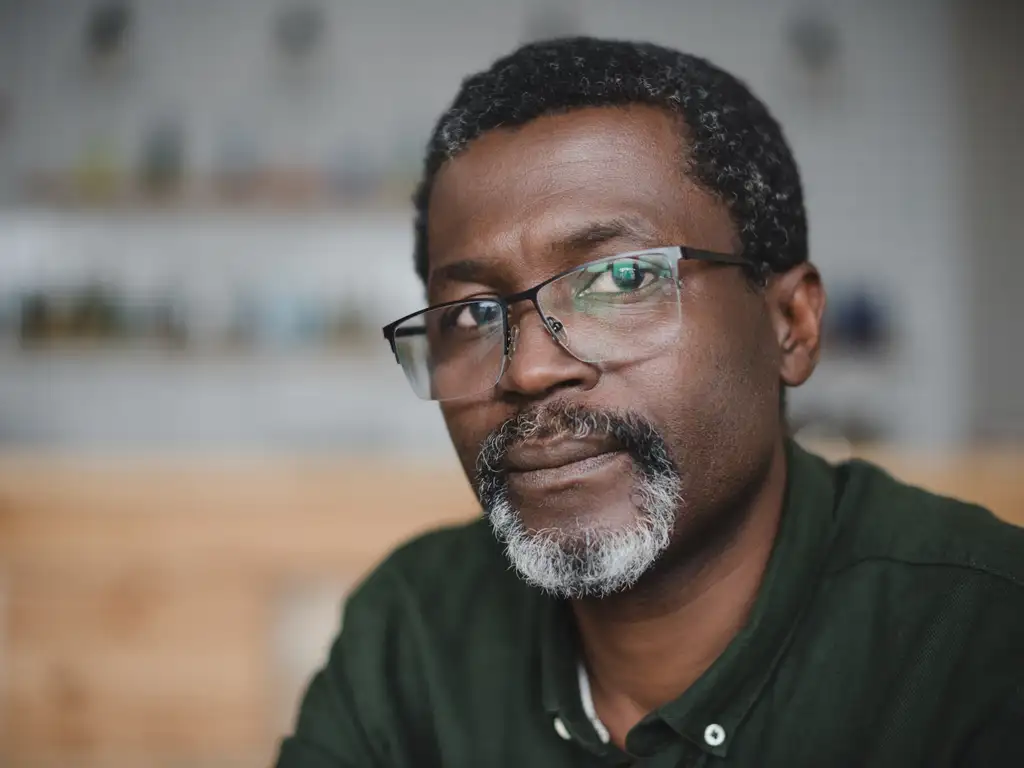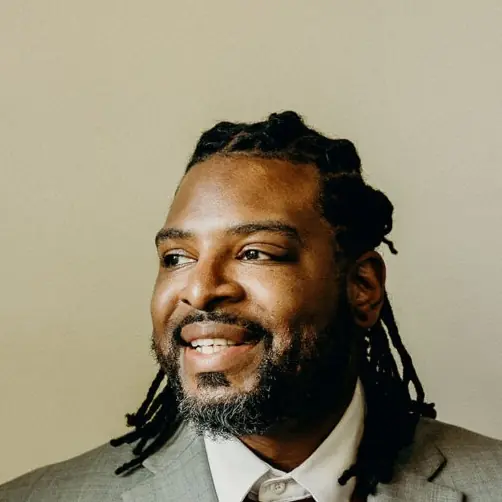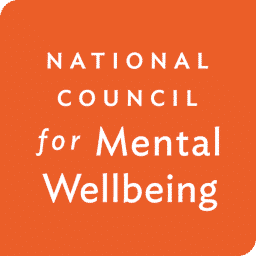Mental health is essential to overall well-being, yet it remains a topic that is often overlooked or stigmatized within many communities. The Black male community is arguably the most affected by this stigma and lack of adequate support.
The Black community, in general, has historically experienced mental, psychological, and emotional health challenges due to systemic racism, poverty, oppression, trauma, and other issues. The National Institute on Minority Health and Health Disparities (NIMHD) reports that the potential of African Americans to suffer serious psychological distress is 20% more likely than white Americans.
Black men, in particular, can be more vulnerable because they may feel that they need to live up to a specific ideal of strength or masculinity that minimizes their ability to talk about their feelings. This can lead to adverse mental health outcomes, especially in young Black adults.
In this blog post, we will explore Black men’s mental health issues, their barriers to accessing mental health care, and the importance of seeking treatment.

The Rising Mental Health Issue Among the Black Male Community
The Black community faces unique challenges that can significantly impact their mental health. The historical and ongoing experiences of racial discrimination, socioeconomic disparities, and systemic inequalities contribute to the mental health tsunami and the heightened psychological and emotional health challenges they face. Moreover, societal expectations of Black masculinity often discourage seeking help for mental health concerns, further exacerbating the issue.
According to the National Alliance on Mental Illness (NAMI), suicide was the third-leading cause of death for Black men aged 15 to 24 in 2020. Black men were also four times more likely to commit suicide than African American women in 2018. The Department of Health and Human Services Office of Minority Health also stated that Black adults are more susceptible to persistent signs of emotional distress than White adults. They often feel melancholy and despair and need to make an extra effort in everything they do.
In a 2018 study of Black male trauma survivors and their mental health service use, researchers noted several psychological or emotional concerns, including:
- Post-traumatic stress disorder (PTSD)
- Major depressive disorder
- Schizophrenia
- Anxiety disorders
- Bipolar disorder
- Substance or alcohol abuse
- Psychiatric comorbidities
Black men’s physical and mental health challenges continue to increase, but they remain overlooked and under-addressed. This mental health crisis should not be taken lightly, and it is vital to understand the disparities in mental health service and treatment access.
What Are the Issues Faced by Black Men in Terms of Mental Health Support?
Unfortunately, when Black men are experiencing mental health challenges, and they seek treatment they encounter numerous barriers to accessing mental health service. These barriers can prevent them from receiving the support they need to address their psychological and emotional challenges effectively. Let’s explore some of these obstacles.
Lack of Accessibility to Mental Health Care Services
In a 2018 Substance Abuse and Mental Health Services Administration (SAMHSA) survey, African Americans of all age groups were less likely to seek mental health services than White Americans. This is for good reason since treating mental illness and finding adequate mental health care services is a significant roadblock for Black men.
In many communities, mental health treatment is either scarce or not readily available, leaving Black men with limited options for psychiatric treatment. This lack of accessibility can stem from various factors, including a shortage of mental health professionals or inadequate funding for the local health care system infrastructure.
Research also shows that African Americans profoundly distrust the healthcare system, making them hesitant to seek care. This is because of the known racism, bias, and abuse that the Black community have experienced — and continue to experience — in the healthcare setting.
Lack of Culturally Responsive Mental Health Services
When Black men finally seek treatment, they often prefer mental health care providers with the same racial or ethnic background. Unfortunately, they are not so easy to find. The American Psychological Association (APA) reported that the U.S. mental health field had only 5.08% of African American psychologists in 2021. This means that many Black men will have to settle for a mental health professional who may not be familiar with their culture, background, and experiences.
Culturally responsive mental healthcare and medical providers are crucial for effectively addressing Black men’s unique needs and experiences. However, such services are often insufficient or unavailable. Many mental health professionals may lack the cultural competence to understand and provide appropriate care for Black men, creating further barriers to seeking treatment and aggravating unmet mental health needs.
Traditional Masculine Mentality
It’s crucial to note how Black masculinity norms affect Black men’s mental health. The traditional ideals of masculinity involve being stoic, strong, and self-reliant. Men may find inherent or productive value in performing physical labor and emotional restraint, not mental or emotional intelligence. They may keep their inner struggles to themselves rather than seek counseling services.
These traditional values and presumptions affect mental health and build significant inner tension, frequent inner struggle, and emotional distress. Help seeking behaviors for suspected mental health issues often is a deeply ingrained mindset – that Black men don’t share their deepest and darkest secrets, Black men don’t need help – this mindset perpetuates the misconception that seeking assistance is a sign of weakness rather than courage and strength.
Lack of Financial Support
Socioeconomic status and financial barriers can further impede Black men’s access to mental health care. Many individuals may not have health insurance or the financial means to afford mental health services. Therapy sessions, medication, and other necessary treatments can be prohibitive for those without adequate financial assistance and resources. Addressing the financial barriers to mental health care is crucial to ensure that Black men have equal opportunities to receive help and treat mental illness.
Stigma and Misinformation
The stigma surrounding mental health issues is prevalent across all communities, and Black men are not exempt from this social construct. The stigma associated with mental health problems can prevent individuals from openly discussing their experiences or seeking help. Misinformation and misconceptions about mental health within the Black community can further contribute to stigmatization, hindering individuals from understanding the importance of seeking treatment.
Overall Societal Issues in the Black Community
The U.S. population includes approximately 13.4 percent, or around 46 million people, who identify as Black or African American, with an additional 2.7 percent identifying as multiracial. The majority of this population resides in the South (55 percent), followed by the Midwest (18 percent), Northeast (17 percent), and West (10 percent).
The number of Black immigrants in the U.S. has significantly increased from 816,000 in 1980 to over 4.2 million by 2016, with 39 percent coming from Africa and nearly half from the Caribbean. In terms of education, about 24 percent of Black and African American individuals hold a bachelor’s degree or higher as of 2017. However, more than 1 in 5 of them still live in poverty, and women head approximately 30 percent of Black households compared to 9 percent in white households.
These disparities can be attributed to historical adversity such as slavery, sharecropping, and exclusion from resources, as well as the disproportional rate in which Black men are arrested and jailed which have translated into socioeconomic inequalities. These disparities, in turn, have a significant impact on mental health, as individuals facing poverty, homelessness, incarceration, or substance use problems are at higher risk of experiencing poor mental health.
Furthermore, despite some progress, racism continues to affect the mental health of Black men and African American people, with negative stereotypes, rejection, and mistrust of authorities being ongoing issues with measurable, adverse consequences.
How To Find the Right Mental Health Services for Black Men
If you are a Black man suffering from turbulent emotional health, it is essential to know that help is available and seeking assistance is a courageous step toward healing and growth. Here are some steps you can take to get the help you need.
Let Go of Traditional Stigma
The traditional ideals of masculinity are outdated and create a separate emotional crisis for Black men. It is time to let go of these narrow-minded beliefs and embrace emotional awareness and mental health as critical components of self-care. Challenging and letting go of the traditional stigma associated with mental health can empower you to take control of your mental and physical wellness.
Recognize and Accept That You Need Help
Acknowledging that you are experiencing mental health issues is a vital first step. Recognize that seeking help for mental health concerns does not make you weak or less of a man. It takes strength to confront and accept the need for assistance. Understand that mental health treatment can be the difference between living a satisfying life and existing in a state of distress.
Research and Find the Appropriate Support
Take the time to research various mental health services and facilities in your area. Look for culturally competent providers who can offer comprehensive mental health care options and personalized care tailored to your unique needs.
Contact them and ask about their expertise, experience, qualifications, and professional credentials with the mental health of Black men.
You can also ask for recommendations from friends, family members, or your primary care doctor or read online reviews to find the proper mental health professional and treatment.
Find an Expert Who Practices Cultural Humility
When treating mental health challenges, find a doctor, counselor, or therapist who understands various racial and ethnic backgrounds and respects your unique experiences as a Black man. Look for mental health providers who practice culturally humility and are aware of the challenges Black men can face. These professionals can provide the guidance and support you need without bias against your mental illness, race, gender, or identity.
Find Support in Your Community
Your mental health journey is not one you have to travel alone. Identify the people, organizations, and other resources available to provide emotional and practical support during this time. Creating a support network of family, friends, or mental health providers who understand and accept you for who you are can be invaluable in providing guidance and assistance. You can develop healthy coping skills and access the right resources to help you take steps toward recovery.
Get the Help You Need at CarePlus New Jersey
Black men’s mental health is a significant issue that deserves both attention and action. By destigmatizing mental health issues, encouraging open conversations, and providing accessible and culturally responsive mental health services, we can support Black men on their journey toward mental well-being.
For quality mental health care, turn to CarePlus New Jersey. Every licensed clinical social worker, mental health provider, psychiatric nurse practitioner, psychologist, and psychiatrist on our team is dedicated to serving patients regardless of their mental illness, race, culture, gender identity, or socioeconomic status. We are committed to providing quality mental health care in a safe, respectful, and inclusive environment for Black men and all members of the community.
Contact us today to learn more about our services.
Sources:
https://www.nami.org/Blogs/NAMI-Blog/March-2023/Black-Men-and-Mental-Health-Practical-Solutions
https://www.ncbi.nlm.nih.gov/pmc/articles/PMC6292675/
https://www.apa.org/monitor/2021/09/ce-Black-mental-health
https://www.happify.com/hd/help-for-Black-men-struggling-with-mental-health-roadblocks/
https://www.talkspace.com/blog/Black-men-mental-health-challenges-therapy/
https://www.nami.org/Blogs/NAMI-Blog/November-2017/How-to-Encourage-Someone-to-See-a-Therapist
https://www.nimhd.nih.gov/docs/byomm_factsheet02.pdf
https://www.minorityhealth.hhs.gov/omh/browse.aspx?lvl=4&lvlid=24
https://www.apa.org/workforce/data-tools/demographics
https://www.ncbi.nlm.nih.gov/pmc/articles/PMC4354806/
https://www.mhanational.org/issues/black-and-african-american-communities-and-mental-health

Thurmond Gillis Jr. MA, LAC, NCC, CADC, Program Manager for the Coordinated Specialty Care and Clinical High Risk for Psychosis Programs at CarePlus NJ
Thurmond Gillis Jr. is a dedicated mental health counselor with a strong passion for guiding individuals of all ages through their mental health journeys. With over 16 years of experience in the field. Currently serving as the Program Manager for the Coordinated Specialty Care and Clinical High Risk for Psychosis Programs at CarePlus NJ. He is the Co- founder and Co-Chair of the Inclusion, Diversity, Equity and Action committee at CarePlus NJ. This committee focuses on the issues surrounding DEIB and how they affect clients, the community and staff at CarePlus NJ. Thurmond possesses a profound understanding of the interplay between mental health issues and diversity equity and inclusion, he is deeply committed to providing culturally aware and inclusive care.









